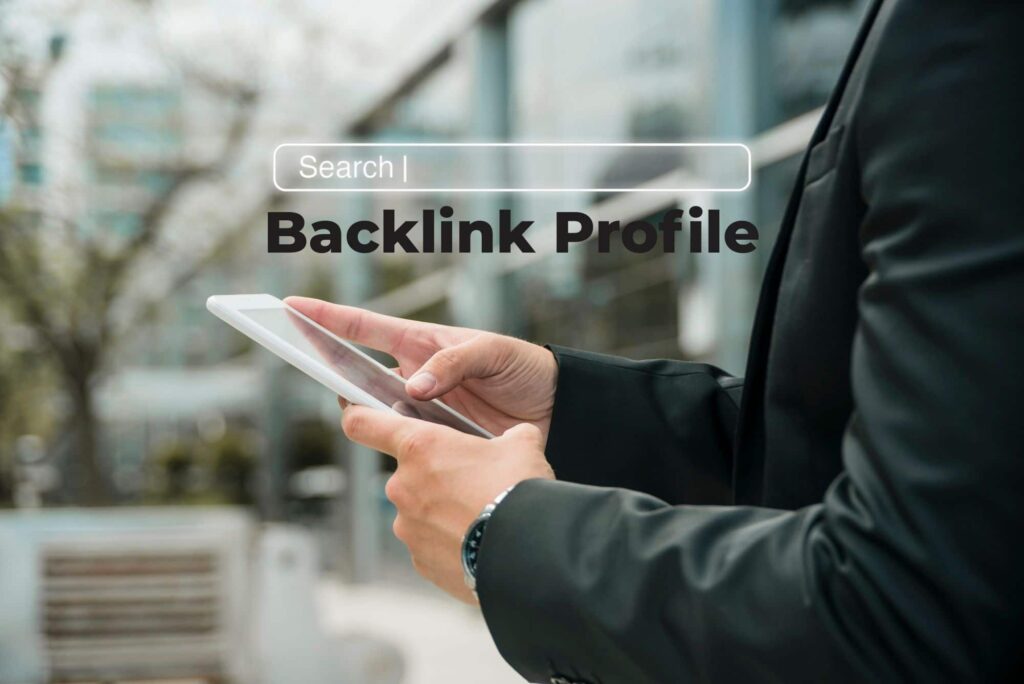Social media has transformed how businesses tackle marketing strategies. In the current digital era, it is clear that social media plays a crucial function in inbound marketing approaches. Companies can utilize social platforms to boost brand visibility, interact with their intended audience, increase website traffic, and create potential leads. This article will explore 14 reasons why is social media an important part of inbound marketing strategies.
Defining Social Media
Social media is an online platform and website that permits users to create, share, and interact with content generated by themselves and others within a virtual community. These platforms often facilitate various forms of communication, including text, images, videos, and links, enabling users to connect, engage, and collaborate with individuals or groups across the globe. Social media platforms serve as digital spaces for networking, information dissemination, entertainment, and expressing ideas, opinions, and interests. Popular social media platforms include Instagram, LinkedIn, YouTube, TikTok, Snapchat, Twitter, Facebook, and Pinterest.
Inbound Marketing
Inbound marketing is a strategy centered on customers to attract prospective clients to a business rather than pushing advertisements. It entails developing and distributing valuable and pertinent content that accommodates the needs and interests of a specific audience. This method builds trust, establishes authority, and encourages customer engagement and conversions. Inbound marketing tactics often include:
- Content marketing.
- Search engine optimization (SEO).
- Social media marketing.
- Email marketing.
Other techniques aim to organically draw potential customers to a brand or business by providing valuable information and solutions to their problems. This approach emphasizes creating a positive and personalized customer experience, fostering long-term relationships and loyalty.
Importance of Social Media in Inbound Marketing
The relevance of social media in inbound marketing is its capacity to amplify content, interact with the intended audience, and direct traffic to your website or landing pages. Social media platforms are valuable channels for sharing and promoting relevant and helpful content created in your inbound marketing strategy. By leveraging social media, businesses can reach a wider audience, foster relationships with potential customers, and encourage interactions that lead to conversions and customer loyalty. Additionally, social media provides valuable insights into audience preferences and behaviors, which can inform and optimize your inbound marketing efforts for better results.
Why Is Social Media an Important Part of Inbound Marketing (14 Top Reasons)
Enhanced Brand Awareness
Globally, billions of people use social media platforms, offering businesses unparalleled chances to extend their reach and engage with varied audiences. By remaining active on social media, companies can boost brand visibility and connect with prospective clients. Consistent and strategic branding on social media can contribute to brand recognition and recall. By sharing branded content, engaging with followers, and participating in relevant conversations, businesses can reinforce their brand identity and ensure that it remains top-of-mind for their target audience. It is the main reason Why Is social media an Important Part of Inbound Marketing?
Targeted Audience Engagement
Most social media platforms provide powerful analytics tools that provide insightful observations into audience demographics, preferences, and behavior. By analyzing this data, businesses can better understand their target audience and customize their content and messaging to Harmonize with their interests and needs. With social media, companies can create and share content tailored to specific demographic segments within their target audience. Whether age, gender, location, or interests, social media platforms allow businesses to customize their content to ensure relevance and maximize engagement. Why Is Social Media an Important Part of Inbound Marketing?
Content Distribution Channels
Social media is an efficient route for distributing and amplifying utilizing social media; businesses can simultaneously reach audiences across multiple platforms. Whether it’s sharing blog posts, videos, infographics, or other types of content, social media platforms allow businesses to distribute their content to a diverse audience base. The infectious character of social media enables content to be shared rapidly among users. Users engaging with and sharing content increases its visibility and reach exponentially. By creating valuable and shareable content, businesses can leverage the power of social media to amplify their message and extend their brand’s reach. Why Is Social Media an Important Part of Inbound Marketing?
Driving Website Traffic
By incorporating hyperlinks to their website in social media posts, businesses can motivate users to visit their sites to learn more about their services. Whether linking to specific landing pages, blog posts, or product pages, social media can drive targeted traffic to critical areas of a business’s website. Crafting compelling social media posts that entice users to click on links is essential for driving website traffic. By incorporating compelling visuals, persuasive copy, and clear calls-to-action (CTAs), businesses can optimize their social media content to maximize click-through rates and drive traffic to their website, which is why social media is an Important Part of Inbound Marketing.
Lead Generation Opportunities
Strategically placing CTAs within social media posts can remind users to take action, such as signing up for a newsletter, downloading a resource, or requesting more information. By crafting compelling CTAs that offer value to users, businesses can capture leads and move them further down the sales funnel. Engaging with users who interact with social media content allows companies to build relationships with potential leads. By responding to comments, messages, and inquiries in a timely and personalized manner, businesses can foster trust and credibility, eventually increasing the likelihood of converting leads into customers.
Community Building and Interaction
By creating a sense of community on social media, businesses can develop a devoted clientele base that is passionate about their brand. Encouraging user-generated content, hosting live Q&A sessions, and facilitating discussions around relevant topics are all ways to engage and empower customers within a social media community. User-generated content, such as customer endorsements, evaluations, and user-generated posts, can serve as powerful social proof and advocacy for a brand. By motivating users to share their experiences and opinions on social media, businesses can leverage user-generated content to amplify their brand’s reach and credibility, which is why social media is an Important Part of Inbound Marketing.
Customer Feedback and Insights
Monitoring social media conversations lets businesses stay informed about what customers say about their brand, products, and industry. By actively listening to feedback, companies can identify areas for improvement, address customer concerns, and capitalize on positive sentiment. Social media platforms are beneficial for soliciting customer feedback about products or services. By conducting polls, surveys, and questionnaires on social media, businesses can gather insights into customer preferences, pain points, and suggestions for improvement, ultimately informing product development and innovation. It is also why social media is an integral part of inbound marketing.
Cost-effectiveness
Compared to conventional avenues for advertising, such as television, radio, and print media, social media advertising is often more affordable and accessible to businesses of all sizes. With options for pay-per-click (PPC) advertising, sponsored content, and influencer partnerships, companies can reach their target audience on social media without breaking the bank. Measuring the ROI of social media campaigns allows companies to assess the efficiency of their marketing efforts and optimize their strategies accordingly. By monitoring essential metrics such as engagement, website traffic, leads generated, and conversions, businesses can determine the impact of their social media activities on their bottom line and make data-driven choices to maximize ROI. Why Is Social Media an Important Part of Inbound Marketing?
Competitive Advantage
Monitoring competitors’ social media strategies allows businesses to gain insights into their benefits, weaknesses, and areas of opportunity. By analyzing competitor activity, content performance, and audience engagement, companies can identify gaps in the market and develop strategies to position themselves more effectively. By remaining knowledgeable about industry trends and emerging technologies, companies can identify gaps in the market and capitalize on new opportunities. Whether leveraging new social media features, targeting niche audience segments, or experimenting with innovative content formats, businesses can use social media to remain in the lead of the curve and maintain a competitive edge. Why Is Social Media an Important Part of Inbound Marketing?
Real-time Communication
Social media platforms serve as valuable customer service and support channels, allowing businesses to promptly address customer concerns and inquiries. By responding to real-time comments, messages, and mentions, companies can show their dedication to customer satisfaction and resolve issues promptly. Social media platforms present companies the chance to provide instant support and assistance to customers, whether it’s troubleshooting product issues, answering questions about services, or providing technical assistance. By offering real-time support on social media, businesses can improve customer encounters and build trust and loyalty with their audience.
Building Authority and Thought Leadership
By sharing thought-provoking content, industry insights, and expert opinions on social media, businesses can position themselves as trusted sources of information within their industry. Whether sharing blog posts, whitepapers, case studies, or webinar recordings, companies can demonstrate their expertise and provide value to their audience. Consistently transmitting worthwhile material and engaging in meaningful conversations on social media allows companies to establish themselves as thought leaders within their industry. By participating in industry events, hosting webinars, and contributing to relevant discussions, companies can build credibility, authority, and trust with their audience, ultimately strengthening their brand reputation.
Integration with Marketing Automation
Marketing automation platforms enable businesses to automate repetitive tasks and workflows, such as scheduling social media posts, monitoring engagement, and nurturing leads through automated email sequences. By integrating social media with marketing automation, businesses can conserve resources and time while maintaining a consistent and targeted presence on social platforms. Marketing automation allows companies to create personalized and targeted campaigns that nurture leads through every stage of the buyer’s journey. By segmenting leads based on their interests, behavior, and demographics, businesses can deliver relevant content and messages via social media, email, and other channels, ultimately guiding leads toward conversion.
Measurable Results and Analytics
Social media platforms offer robust analytics tools that allow businesses to follow key performance indicators (KPIs) such as engagement, reach, impressions, clicks, conversions, and more. By monitoring these metrics, companies can assess the execution of their social media campaigns, identify areas for improvement, and maximize their strategies to achieve their marketing goals. Analyzing social media data and insights allows businesses to make well-informed choices and adjust their strategy accordingly. Whether optimizing content, reallocating resources, or experimenting with new tactics, companies can leverage social media analytics to improve their marketing efforts and continuously drive better results.
Adaptability to Market Trends
Social media platforms constantly evolve, with new features, trends, and technologies emerging regularly. By remaining knowledgeable about the latest social media trends and updates, businesses can adapt their strategies accordingly and capitalize on new opportunities to engage with their audience. The dynamic nature of social media allows companies to adjust their strategy quickly in response to market shifts, industry trends, and consumer behavior changes. Whether it’s pivoting content strategy, reallocating ad spend, or experimenting with new formats, businesses can leverage social media’s flexibility to stay agile and responsive to market dynamics.
Optimal Strategies for Inbound Marketing on Social Media
- Know Your Audience: Understand your target audience’s demographics, interests, preferences, and behaviors to create content that resonates with them.
- Provide Value: Rather than concentrating only on marketing messages, provide your audience with informative, entertaining, or problem-solving material.
- Consistency: To keep your audience interested and visible on social media, stick to a regular publishing schedule.
- Engage with Your Audience: Respond promptly to comments, messages, and mentions to foster meaningful interactions and build relationships with your audience.
- Use Visual Content: Incorporate visually appealing content such as images, videos, infographics, and GIFs to capture attention and convey your message effectively.
- Optimize for Each Platform: Tailor your content and messaging to each social media platform’s unique features, audience demographics, and best practices.
- Include Call-to-Actions (CTAs): Motivate your audience to act by incorporating explicit and persuasive Calls to Action (CTAs) in your social media posts, like looking at your webpage, signing up for a newsletter, or purchasing.
- Monitor and Analyze Performance: Regularly monitor critical metrics such as engagement, reach, clicks, and Use conversions to assess the influence of your social media endeavors and modify your strategy as needed.
- Use Hashtags Wisely: Research relevant hashtags to increase your content’s discoverability and reach a broader audience on platforms like Instagram and Twitter.
- Encourage User-generated Content (UGC): Urge your audience to generate and distribute content linked to your brand or products, displaying genuine experiences and testimonials.
- Collaborate with Influencers: Partner with influencers or brand advocates in your industry to amplify your reach, credibility, and engagement on social media.
- Stay Updated with Trends: Keep up-to-date with current social media trends, features, and algorithm changes to adapt your strategy and stay relevant.
Conclusion
In conclusion, social media is crucial in inbound marketing by enhancing brand awareness, driving targeted audience engagement, facilitating content distribution, and generating leads. From fostering community building and interaction to providing real-time communication and analytics insights, social media offers businesses many benefits that contribute to their overall marketing success. By integrating social media into their marketing efforts and leveraging its unique capabilities, companies can establish a competitive advantage, build brand authority, and drive meaningful engagement with their target audience.
Frequently Asked Questions (FAQs)
Why is social media important in inbound marketing?
Social media is crucial in inbound marketing because it allows businesses to amplify their content, engage with their target audience, drive website traffic, and generate leads effectively. It provides:
- A platform for sharing valuable content.
- Fostering relationships with potential customers.
- Gathering insights into audience preferences and behaviors.
How does social media enhance brand awareness in inbound marketing?
Social media platforms have trillions of users worldwide, providing businesses exceptional opportunities to broaden their outreach and engage with a varied audience. Through active engagement on social media, companies can enhance their brand visibility and connect with prospective clients. Consistent and strategic branding on social media contributes to brand recognition and recall.
What role does target audience engagement play in inbound marketing through social media?
Social media platforms provide powerful analytics tools that offer valuable insights into audience demographics, preferences, and behavior. By analyzing this data, businesses can tailor their content and messaging to resonate with their audience’s interests and needs. Social media enables companies to develop and distribute tailored content for specific demographic segments within their target audience, enhancing engagement and interaction.
How does social media serve as content distribution channels in inbound marketing?
Social media is an effective channel for simultaneously distributing and amplifying content across multiple platforms. Companies can distribute content, including blog posts, videos, infographics, or other valuable resources, to reach a diverse audience base. The contagious aspect of social media allows content to spread quickly among users, boosting its visibility and increasing exponentially.
What opportunities does social media offer for lead generation in inbound marketing?
Strategically placing calls-to-action (CTAs) within social media posts prompts users to take action, such as signing up for a newsletter or requesting more information, leading to lead generation opportunities. Engaging with users who interact with social media content allows businesses to build relationships with potential leads, fostering trust and credibility and increasing the likelihood of converting leads into customers.



































